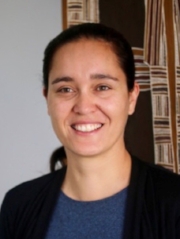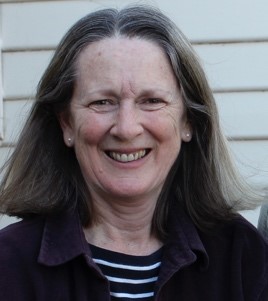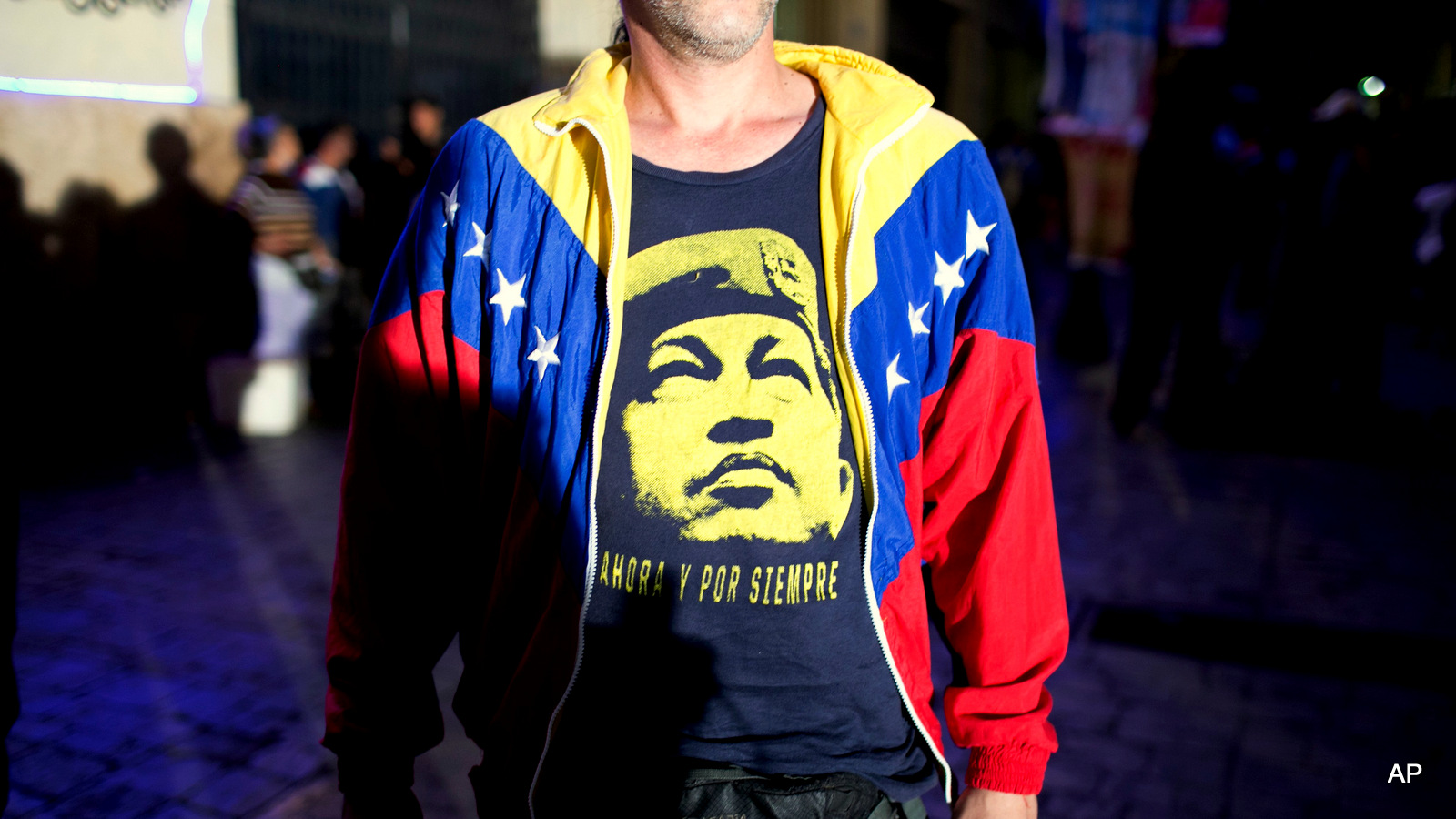Book reviews: A Quaker Prayer Life | The Australian Friend
A Quaker prayer life arises from a life of continuing daily attentiveness. The first generation of Quakers followed a covenant with God, based on assidious obedience to the promptings of the Inward Light. This process did not require the established churches, priests or liturgies. Quaker prayer then became a practice of patient waiting in silence. Prayer is a conscious choice to seek God, in whatever form that Divine Presence speaks to each of us, moment to moment. The difficulties we experience in inward prayer are preparation for our outward lives. Each time we return to the centre in prayer we are modelling how to live our lives; each time we dismiss the internal intrusions we are strengthening that of God within us and denying the role of the Self; every time we turn to prayer and to God we are seeking an increase in the measure of Light in our lives. David Johnson is a Member of Queensland Regional Meeting of the Australia Yearly Meeting of the Religious Society of Friends. David is a geologist with both industry and academic experience, and wrote The Geology of Australia, specifically for the general public. He has a long commitment to nonviolence and opposing war and the arms trade, and has worked with the International Campaign to Ban Landmines. David delivered the 2005 Backhouse Lecture to Australia Yearly Meeting on Peace is a Struggle. He was part of the work to establish the Silver Wattle Quaker Centre in Australia in 2010, and is Co-Director of the Centre for 2013-14.
Book reviews: A Quaker Prayer Life
June 1, 2014/2 Comments/in 1406 June 2014 /by David Swain



 David Johnson’s book is undoubtedly a significant contribution to our understanding of prayer, but one that will speak to the condition of some Quakers more than others. With this in mind, the editors ofThe Australian Friend have commissioned two reviews in an attempt to obtain fuller appreciation of David’s work.
David Johnson’s book is undoubtedly a significant contribution to our understanding of prayer, but one that will speak to the condition of some Quakers more than others. With this in mind, the editors ofThe Australian Friend have commissioned two reviews in an attempt to obtain fuller appreciation of David’s work.
Etched into my memory is the definition of “prayer” I learned as a Catholic child in the 1950s, “Prayer is thinking about God, speaking to Him, desiring to love Him, and asking Him for what we need in soul and body”, but that is not really what David Johnson is talking about here. David defines prayer as “a conscious choice to seek God, in whatever form that Divine Presence speaks to us”. God, he says, “is simply a short word to convey that huge range of mystical feelings and understandings, most of which cannot be put into words.”
But then he immediately attributes qualities to God which are those of a sentient being and not something that would be characteristic of “feelings and understandings”. He says, for example, that there have been a series of covenants established between God and people, though he does not specify how, when and with which particular people, nor what form these covenants took. While “the Spirit does guide us to pray in different ways along the journey”, he says it is the Covenant of Light which guides the Quaker prayer of which he speaks. The Light acts as “Revealer and Healer” which, through the process of prayer, “shows us two things: what is wrong within us and blocking our way to God, and also what we are to do to be God’s instrument in the world”, the process being one of “inner cleansing and purification”.
David draws on some of the writings of early Friends, as well as the Bible (both Old and New Testaments) – which those Friends would have been very familiar with. He also refers to some early Christian mystics, later Friends, and some ideas from the Buddhist tradition – all of which the early Friends would not have been familiar with. He sets out, and elaborates on, three steps involved in this form of prayer and provides an appendix which suggests practical techniques for entering the prayerful state.
The first step in the prayer process is perhaps quite familiar to many of us who practise it, or something very like it, as we settle into Meeting for Worship or engage in our own private meditation. This involves a centring down, “constrain[ing] our inner attention to the central line within ourselves” and “withdraw[ing] our attention from the outside world”. He says that “it is most important to determinedly stay away from ANY thoughts”, those intrusions of what he calls the Self or the Ego. It is a process of letting go, of surrender, in which “we are to give up all control by our Self”.
David frames this process as a kind of battle in which the Self (perhaps appearing in one of various guises – Monitor, Reasoner, Justifier, Doubter, Pretender) tries to wrest or maintain control by various, sometimes subtle, strategies which are designed “to divert us from prayer”. He says that these attempts to control have been personified at various times as “the Devil, Lucifer, Satan” and so on. This externalising and personifying, he claims, represents “a profound error … because it allows people to blame this as a foreign influence within them” and not accept the blame themselves. We must avoid any sense of achievement when we get it right (therein lies “the sin of vainglory”), but when we get it wrong, it is totally our fault. He refers to Barclay’s Apology which, he says, makes it “very clear that our spiritual rescue is in the hands of God, though our ‘condemnation’ is entirely in our hands”. And this corresponds to David’s Step Two: “Yield Mentally and Accept that True Prayer and Ministry are the work of God not the Human Mind”.
It is around this framework that my experience of “prayer” parts company with the process David describes. The image that comes to mind when he talks about “denying the Self any role in the process of prayer” and the striving of the Ego to maintain control, is an epic battle such as between St Michael and Satan or between St George and the Dragon. Sure, as I let go of the thoughts in my head and the tension in my body, thoughts keep passing through. But I don’t put the value judgment on them as being the work of that of the Devil within me, desperately trying to keep control. It’s a much less dramatic experience. They are just thoughts and I neither grab hold of them nor do battle with them. It is a gentle process of noticing them and letting them quietly slide past, like puffy white clouds floating past the window or goldfish gliding by in a pond.
Step Three for David is to “Accept and Love the Light”. This Light is a searing one which brings about “inner cleansing and purification”, showing “your inner errors and wrongdoings, and also what to do”. My inner self must, by implication, be unclean and impure with the errors and wrongdoings that I need to confront.
David admits that “this inward re-assessment can be quite a severe process” and I certainly find this kind of asceticism quite grim and, frankly, cheerless. Where here are the “good tidings of great joy” (Luke 2:11)? I find plenty in both the Old and New Testaments which reflects my experience of letting go, of “prayer”. When I am “beside the still waters” my soul is restored. I have a sense of being tenderly anointed with oil (Psalm 23). I feel covered with feathers and tucked under wings (Psalm 91). When I have laboured and am heavy laden, I feel rested (Matthew 11.28). David says that “self-denial moves to the position of ceasing to ask for joy and consolation”. But if joy and consolation is what comes, surely it is ungracious to refuse it? I accept it. With gratitude.
With Thomas Kelly (A Testament of Devotion), I celebrate this joy: “And one sings inexpressibly sweet songs within oneself, and one tries to keep one’s inner hilarity and exuberance within bounds lest, like the men of Pentecost, we are mistaken for men filled with new wine. Traditional Quaker decorum and this burning experience of a Living Presence are only with the greatest difficulty held together!” And with Thomas, “I’d rather be jolly Saint Francis hymning his canticle to the sun”.
David presents his views in absolute terms. There is no tentativeness here; no equivocation. This is what is. But I have to say that what I know experimentally is something quite other.
Kerry O’Regan, South Australia and Northern Territory Regional Meeting
============
David Johnson refers to this piece of writing as an essay, so I will also refer to it thus. A Quaker Prayer Life takes us back to early Quaker and Scriptural writings to explain the meaning and purpose of prayer, predominantly to those building the Quaker community in the seventeenth century. Johnson uses the writings of these Friends to support a model of three stages of prayer: step 1: centering down, stand still in the light; stage two: yield mentally and accept true prayer and ministry are the work of God; and step three: accept and love the light. The prayer that is the subject here is what I call formal prayer, where we sit quietly to be with God, or the prayer that can happen in a gathered Meeting for Worship. We are all aware of Meetings for Worship that become a political platform. This is not what would be referred to as prayer in this essay. Or either, the prayer that happens throughout the day – what I call conversational prayer. Prayer, in the context of this essay I take to be (p63):
A conscious choice to seek God. The attentiveness, waiting in silent prayer, is practice for listening to God during the rest of the day.
This is a challenging read. Johnson does clarify in the introduction that many of the quotes are in “old” English and biblical quotes are from the King James (VI&I) Version. He also acknowledges the gender inconsistency in such quotes and endeavors to balance this with gender balanced or neutral language in his writing. He further acknowledges that while he uses the word God this is not the preferred choice of many Friends. These statements are important to me as a reader. However, the wish to practice as the first Quakers practiced, is for me more than a change in language of the day; it is also a change in the meaning of the language used. I find this particularly in step one, where words like be not careless, or slothful and lazy are used. I also find some of the many biblical quotes in this section negative and unhelpful. We are asked to translate into our own words while seeking to understand the spiritual reality that underlies the original words and I accept this challenge, however challenges while learning to centre down, being referred to as “insidious” may not encourage continued reading of this work. I was encouraged in this section by how Johnson manages the concept of the Devil, a concept I struggle with and one he sees as a caricature based on mythical images, and therefore a concept I can put into the context of my thinking and being.
Moving on to steps two and three, I felt the gifts of this essay coming to life for me. Fox and William Penn’s advice on “the matter of waiting” and how “standing in the light is the first steps to peace” were two such gifts.
The essay also refers to the similarity of the early Quaker practices to other faith practices, e.g., Hindu and Buddhist, and I agree with his point. Johnson talks about this as the meditative method. Personally I find that though there is a stronger focus on self discipline in, for instance, the Buddhist sutras, the compassionate language style is more comfortable for me than the Christian more punitive language style, and I am comfortable integrating the styles.
I am glad I read this essay. I am fortunate that I read this in a hermitage on a cliff in the bush disturbed by nothing other that the birds and the sound of the sea. I can take the teachings and apply them to my practice here and reap the benefit. Being in this ideal setting does encourage me to ask who is the target audience for this essay? It occurs to me that it can apply to several target groups once the early challenges are overcome. My copy of this work is an essay with many highlighted praises and paragraphs, and a work I am sure I will be led to return to in the future.
Wilma Davidson, Canberra Regional Meeting
A Quaker Prayer Life by David Johnson, Published by Inner Light Books, 2013, 84 pages.
[Wilma Davidson has written some thoughts on hermits and and silent contemplation in the journal Raven’s Bread which can be found at http://www.ravensbreadministries.com/pdfs/RB0214.pdf]



 David Johnson’s book is undoubtedly a significant contribution to our understanding of prayer, but one that will speak to the condition of some Quakers more than others. With this in mind, the editors ofThe Australian Friend have commissioned two reviews in an attempt to obtain fuller appreciation of David’s work.
David Johnson’s book is undoubtedly a significant contribution to our understanding of prayer, but one that will speak to the condition of some Quakers more than others. With this in mind, the editors ofThe Australian Friend have commissioned two reviews in an attempt to obtain fuller appreciation of David’s work.Etched into my memory is the definition of “prayer” I learned as a Catholic child in the 1950s, “Prayer is thinking about God, speaking to Him, desiring to love Him, and asking Him for what we need in soul and body”, but that is not really what David Johnson is talking about here. David defines prayer as “a conscious choice to seek God, in whatever form that Divine Presence speaks to us”. God, he says, “is simply a short word to convey that huge range of mystical feelings and understandings, most of which cannot be put into words.”
But then he immediately attributes qualities to God which are those of a sentient being and not something that would be characteristic of “feelings and understandings”. He says, for example, that there have been a series of covenants established between God and people, though he does not specify how, when and with which particular people, nor what form these covenants took. While “the Spirit does guide us to pray in different ways along the journey”, he says it is the Covenant of Light which guides the Quaker prayer of which he speaks. The Light acts as “Revealer and Healer” which, through the process of prayer, “shows us two things: what is wrong within us and blocking our way to God, and also what we are to do to be God’s instrument in the world”, the process being one of “inner cleansing and purification”.
David draws on some of the writings of early Friends, as well as the Bible (both Old and New Testaments) – which those Friends would have been very familiar with. He also refers to some early Christian mystics, later Friends, and some ideas from the Buddhist tradition – all of which the early Friends would not have been familiar with. He sets out, and elaborates on, three steps involved in this form of prayer and provides an appendix which suggests practical techniques for entering the prayerful state.
The first step in the prayer process is perhaps quite familiar to many of us who practise it, or something very like it, as we settle into Meeting for Worship or engage in our own private meditation. This involves a centring down, “constrain[ing] our inner attention to the central line within ourselves” and “withdraw[ing] our attention from the outside world”. He says that “it is most important to determinedly stay away from ANY thoughts”, those intrusions of what he calls the Self or the Ego. It is a process of letting go, of surrender, in which “we are to give up all control by our Self”.
David frames this process as a kind of battle in which the Self (perhaps appearing in one of various guises – Monitor, Reasoner, Justifier, Doubter, Pretender) tries to wrest or maintain control by various, sometimes subtle, strategies which are designed “to divert us from prayer”. He says that these attempts to control have been personified at various times as “the Devil, Lucifer, Satan” and so on. This externalising and personifying, he claims, represents “a profound error … because it allows people to blame this as a foreign influence within them” and not accept the blame themselves. We must avoid any sense of achievement when we get it right (therein lies “the sin of vainglory”), but when we get it wrong, it is totally our fault. He refers to Barclay’s Apology which, he says, makes it “very clear that our spiritual rescue is in the hands of God, though our ‘condemnation’ is entirely in our hands”. And this corresponds to David’s Step Two: “Yield Mentally and Accept that True Prayer and Ministry are the work of God not the Human Mind”.
It is around this framework that my experience of “prayer” parts company with the process David describes. The image that comes to mind when he talks about “denying the Self any role in the process of prayer” and the striving of the Ego to maintain control, is an epic battle such as between St Michael and Satan or between St George and the Dragon. Sure, as I let go of the thoughts in my head and the tension in my body, thoughts keep passing through. But I don’t put the value judgment on them as being the work of that of the Devil within me, desperately trying to keep control. It’s a much less dramatic experience. They are just thoughts and I neither grab hold of them nor do battle with them. It is a gentle process of noticing them and letting them quietly slide past, like puffy white clouds floating past the window or goldfish gliding by in a pond.
Step Three for David is to “Accept and Love the Light”. This Light is a searing one which brings about “inner cleansing and purification”, showing “your inner errors and wrongdoings, and also what to do”. My inner self must, by implication, be unclean and impure with the errors and wrongdoings that I need to confront.
David admits that “this inward re-assessment can be quite a severe process” and I certainly find this kind of asceticism quite grim and, frankly, cheerless. Where here are the “good tidings of great joy” (Luke 2:11)? I find plenty in both the Old and New Testaments which reflects my experience of letting go, of “prayer”. When I am “beside the still waters” my soul is restored. I have a sense of being tenderly anointed with oil (Psalm 23). I feel covered with feathers and tucked under wings (Psalm 91). When I have laboured and am heavy laden, I feel rested (Matthew 11.28). David says that “self-denial moves to the position of ceasing to ask for joy and consolation”. But if joy and consolation is what comes, surely it is ungracious to refuse it? I accept it. With gratitude.
With Thomas Kelly (A Testament of Devotion), I celebrate this joy: “And one sings inexpressibly sweet songs within oneself, and one tries to keep one’s inner hilarity and exuberance within bounds lest, like the men of Pentecost, we are mistaken for men filled with new wine. Traditional Quaker decorum and this burning experience of a Living Presence are only with the greatest difficulty held together!” And with Thomas, “I’d rather be jolly Saint Francis hymning his canticle to the sun”.
David presents his views in absolute terms. There is no tentativeness here; no equivocation. This is what is. But I have to say that what I know experimentally is something quite other.
Kerry O’Regan, South Australia and Northern Territory Regional Meeting
============
David Johnson refers to this piece of writing as an essay, so I will also refer to it thus. A Quaker Prayer Life takes us back to early Quaker and Scriptural writings to explain the meaning and purpose of prayer, predominantly to those building the Quaker community in the seventeenth century. Johnson uses the writings of these Friends to support a model of three stages of prayer: step 1: centering down, stand still in the light; stage two: yield mentally and accept true prayer and ministry are the work of God; and step three: accept and love the light. The prayer that is the subject here is what I call formal prayer, where we sit quietly to be with God, or the prayer that can happen in a gathered Meeting for Worship. We are all aware of Meetings for Worship that become a political platform. This is not what would be referred to as prayer in this essay. Or either, the prayer that happens throughout the day – what I call conversational prayer. Prayer, in the context of this essay I take to be (p63):
A conscious choice to seek God. The attentiveness, waiting in silent prayer, is practice for listening to God during the rest of the day.
This is a challenging read. Johnson does clarify in the introduction that many of the quotes are in “old” English and biblical quotes are from the King James (VI&I) Version. He also acknowledges the gender inconsistency in such quotes and endeavors to balance this with gender balanced or neutral language in his writing. He further acknowledges that while he uses the word God this is not the preferred choice of many Friends. These statements are important to me as a reader. However, the wish to practice as the first Quakers practiced, is for me more than a change in language of the day; it is also a change in the meaning of the language used. I find this particularly in step one, where words like be not careless, or slothful and lazy are used. I also find some of the many biblical quotes in this section negative and unhelpful. We are asked to translate into our own words while seeking to understand the spiritual reality that underlies the original words and I accept this challenge, however challenges while learning to centre down, being referred to as “insidious” may not encourage continued reading of this work. I was encouraged in this section by how Johnson manages the concept of the Devil, a concept I struggle with and one he sees as a caricature based on mythical images, and therefore a concept I can put into the context of my thinking and being.
Moving on to steps two and three, I felt the gifts of this essay coming to life for me. Fox and William Penn’s advice on “the matter of waiting” and how “standing in the light is the first steps to peace” were two such gifts.
The essay also refers to the similarity of the early Quaker practices to other faith practices, e.g., Hindu and Buddhist, and I agree with his point. Johnson talks about this as the meditative method. Personally I find that though there is a stronger focus on self discipline in, for instance, the Buddhist sutras, the compassionate language style is more comfortable for me than the Christian more punitive language style, and I am comfortable integrating the styles.
I am glad I read this essay. I am fortunate that I read this in a hermitage on a cliff in the bush disturbed by nothing other that the birds and the sound of the sea. I can take the teachings and apply them to my practice here and reap the benefit. Being in this ideal setting does encourage me to ask who is the target audience for this essay? It occurs to me that it can apply to several target groups once the early challenges are overcome. My copy of this work is an essay with many highlighted praises and paragraphs, and a work I am sure I will be led to return to in the future.
Wilma Davidson, Canberra Regional Meeting
A Quaker Prayer Life by David Johnson, Published by Inner Light Books, 2013, 84 pages.
[Wilma Davidson has written some thoughts on hermits and and silent contemplation in the journal Raven’s Bread which can be found at http://www.ravensbreadministries.com/pdfs/RB0214.pdf]
========



















Helen Gouldsays:
June 29, 2014 at 8:56 pm
I loved David Johnson’s little book “A Quaker Prayer Life” and have used it intensively as preparation for my own daily worship. I believe that this is how the Early Friends prayed, and what power they experienced. Thank you, David, for making available to us these wonderful passages from Early Friends, the Hebrew Scriptures and more. Over the years I have experienced healing, as through worshipping alone and in Meeting I have experienced the Light shining into the dark corners of my behaviour and gradually, or sometimes “searingly”, that darkness ceases. (And from time to time I am made aware of yet another area of darkness). I often experience pain through this process, and also great joy. These days the underlying song in my life, is of gratitude, Alleluia!
Thank you, David for this wonderful book, and Kerry and Wilma for your insights.
Helen Gould
Nanjing, 6 June 2014.Reply
Roger Keyessays:
July 16, 2014 at 6:23 pm
Friends, I am very pleased that David has given us this Ministry. For to me, that is what it is … a Ministry rather than an artful work of literature. There are expressions used by David which I would not use, and there are theological concepts with which I might cavil. And there are even some “typos”.
Over all, he has shown us a way back from the concept of our Worship as a philosophical adventure or meditation, and the notion that ministry in Meeting for Worship might be a lecture on some brilliant philosophical idea that we’ve just thought up inviting a general discussion.
Our Friend has gathered together for us the Ministries of some of our forbears (not gurus, experts, and professors”), and will, I believe, be a handbook for many of us in the Life of Prayer.
With love from Roger Keyes.